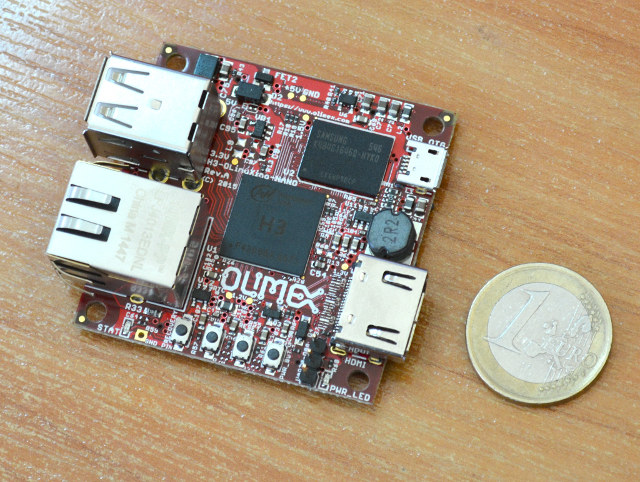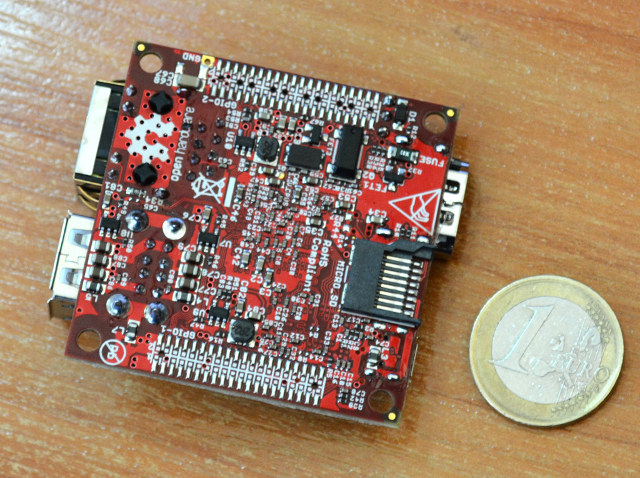Allwinner H3 processor is quite popular in development boards thanks to some of Shenzhen Xunlong’s Orange Pi boards such as Orange Pi PC or Orange Pi One. However, some specific features may not work 0ut of the box, or are undocumented, so it’s always a plus when more companies create boards for a platform, and that’s exactly what Olimex has done with H3-OlinuXino-NANO, a board that’s smaller than any Orange Pi boards, the first open source hardware Allwinner H3 board on the market, and featuring many more I/O pins available.

Olimex H3-OlinuXino-NANO specifications:
- SoC – Allwinner H3 quad core Cortex-A7 processor @ 1.2 GHz with Mali-400MP2 GPU
- System Memory – 512MB of DDR3 RAM
- Storage – micro SD card slot
- Video Output- HDMI up to 1080p60
- Connectivity – 10/100M Ethernet
- USB – 2x USB host ports + 1x micro USB OTG port
- Expansion – Optional 2x 40-pin headers with GPIOs, I2C, SPI, etc…
- Debugging – UART console
- Misc – 4x user buttons, 4x mounting holes
- Power Supply – 5V via micro USB OTG port
- Dimensions – 50×50 mm (6-layer PCB)

The board above actually comes after the larger H3-OLinuXino board with 1GB memory, but as the first prototypes would overheat, it looks like the NANO version may be released first. Eagle schematics and PCB layout are will soon be available on github. The board will support Linux distributions and Android, and can be used as a general purpose Linux computer, a digital signage, a low cost IoT gateway, an Android TV box, for education and so on.
Testing is still in progress, and price and release date are unknown at this stage, but the company said H3-OLinuXino-NANO will be cheaper than A10-OlinuXino-LIME board selling for 30 Euros.

Jean-Luc started CNX Software in 2010 as a part-time endeavor, before quitting his job as a software engineering manager, and starting to write daily news, and reviews full time later in 2011.
Support CNX Software! Donate via cryptocurrencies, become a Patron on Patreon, or purchase goods on Amazon or Aliexpress




